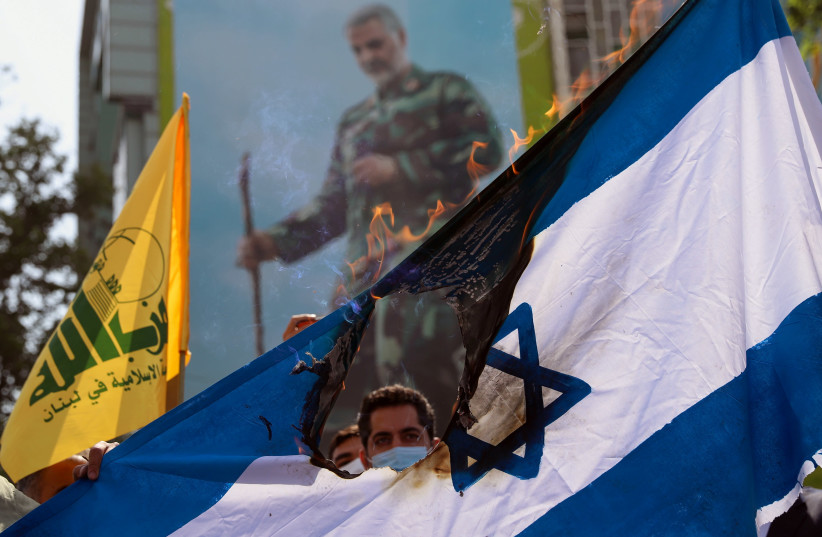In the four years since Avigdor Liberman brought down Benjamin Netanyahu’s fourth government and sent the country to what has become an endless election spiral, the country has weathered a global pandemic, successfully fought two minor wars in Gaza, defused a wave of terrorism, made peace with three Arab countries and seen the economy grow.
As a result, some could look at the country’s inability to form a stable government and unending elections as nothing more than an unpleasant inconvenience. Sure. it would be better to have political stability, but even without it, we are managing pretty well, right?
Wrong.
Israel's political crisis has consequences
Granted, the country is getting by day-to-day with caretaker and transitional governments, but don’t be fooled. This situation has consequences. This type of political instability – and the internal strife it fuels – radiates outward and impacts how Israel’s enemies view it, and the actions they take as a result of their perceptions of what is happening to Israeli society.
Shin Bet (Israel Security Agency) head Ronen Bar said as much Monday at a conference at Reichman University in Herzliya. At the end of a survey he gave of Israel’s considerable security challenges, Bar enumerated one more complicated challenge.
“The last challenge is the deep and growing rift developing within Israeli society over its character,” he said. “From the intelligence that we read, and the interrogations with attackers that we see, and many years of knowledge of our enemies wherever they are, it is possible to say today without any doubt: The political instability, the growing internal division, the breaking up of the historical common denominators, and the radicalized discourse – all these are a shot of encouragement to the countries of the axis of evil, to terrorist organizations, and to lone attackers.

“The prevailing feeling among our adversaries is that our historic comparative advantage, the one that helped us for thousands of years – our national resilience – is dissipating,” Bar added. “This insight should disturb us more than anything else. This is something the Shabak [Shin Bet] can warn about, but certainly not deal with. That is something in every one of our hands.”
"Our national resilience is dissipating"
Shin Bet head Ronen Bar
Bar’s message is clear. Israel’s enemies are watching closely the developments inside the country – the unending elections, the divisions that these elections highlight, the extreme rhetoric that becomes the norm during campaigns, the solidarity that erodes with each successive divisive election, the endless debate over the direction of the country – and are concluding: Israel is weak and divided and falling apart, so the time to act against it is now.
Israel needs to project societal strength and solidarity. Instead, we are transmitting a sense of deep domestic division and the loss of common purpose. This would not be the first time Israel’s enemies looked at the country’s internal rifts and read them as a sign of weakness. And when Israel’s enemies sense weakness, it is often just a matter of time before they test the country’s resolve.
Twenty-two years ago, after Israel withdrew from southern Lebanon, Hezbollah chief Hassan Nasrallah gave a famous speech in which, according to his reading of Israeli society at the time, he said the Jewish state might “own nuclear weapons and the strongest war aircraft in the region” but it is “feebler than a spider’s web.”
Nasrallah was saying that if you blow on the web hard enough, it will disappear. Four months later, Yasser Arafat took his advice, and following the breakdown of the Camp David talks – when he did not get all he desired – launched a protracted terrorist war against Israel known as the second intifada.
Israel's politicians must internalize Bar's warning
Bar is warning of a repeat performance. Five elections in three-and-a-half years convey the sense of a county that cannot get its act together, and if the country looks confused, it invites adventurism by its enemies, near and far.
There are consequences to going to elections time after time after time without any conclusive decision, and those consequences go way beyond merely a lack of consistency in government policy.
A lot more is at stake than, perhaps, not being able to pass a national budget. The country’s politicians need to internalize Bar’s message, form a stable government after the upcoming election, and put an end to a state of political affairs in this country that is as dangerous as it is ridiculous.
